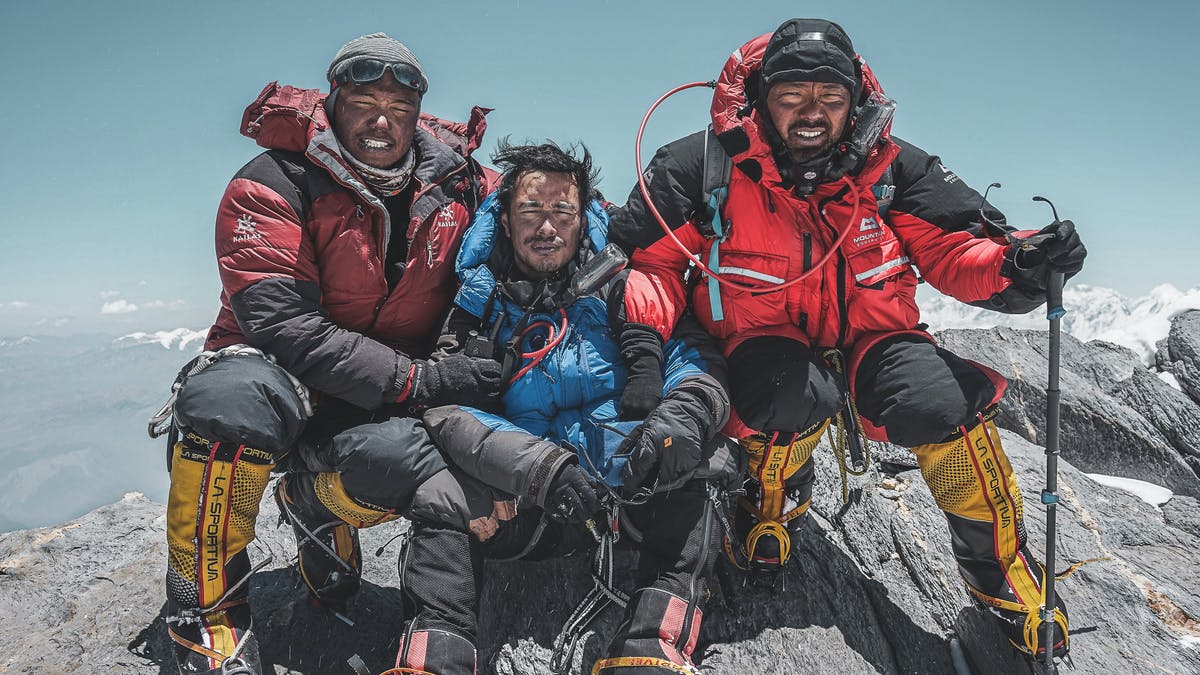I am pretty sure that most of you have already watched ‘14 Peaks: Nothing is Impossible’—the Netflix documentary on Nirmal Purja (Nimsdai) about his record-breaking mountain expedition: Project Possible 14/7.
The documentary released on 26 November 2021 has become one of the most watched films of the week on Netflix. It is on the seventh position globally with over 12 million hours of watchtime and received an 8.2 rating on IMDb.
Born in Myagdi to a lower-middle-class family that moved to Chitwan, Purja was surrounded by Gurkha soldiers in the family. He also joined the Brigade of Gurkhas in 2003 and was accepted into the Royal Navy’s Special Boat Service (SBS) in 2009, becoming the first Gurkha to join the elite British unit. He further served in Special Boat Service as a cold-weather warfare specialist and Special Air Service (SAS) unit.
Purja first got into mountaineering in 2012 when he summited Lobuche (6,119m) and Dhaulagiri in 2014. He summited the highest peak in the world, Everest in 2016. Even at this point, he did not think of bidding adieu to the military.
In 2017, he completed the Everest-Lhotse-Makalu summit within five days. “I later realized I could have done it in three days, had I not rested,” he says on the idea of climbing all 14 peaks in the world above 8,000m in less than seven months. The previous record for the same feat was nearly eight years, but he did it in just six months and six days. “A lot of people didn’t believe me at the time when I shared my idea,” he adds.
Also read: Dr Garima Shrestha: A doctor treating social taboos
For Project Possible 14/7, Nimsdai was accompanied by Mingma David Sherpa, Lakpa Dendi, Geljen Sherpa, and Tensi Kasang, among other mountaineers. They started with Annapurna on 23 April 2019, and on 24 May 2019, they had completed climbing six of the mountains, completing phase I. This time, he broke his own world record by climbing Mt Everest, Lhotse, and Makalu in 2 days and 30 minutes.
The second phase of his project took him to Pakistan where he had to summit five peaks, including the deadly K2 and Nanga Parbat. Nimsdai and his team made another world record by climbing K2 on 24 July 2019—the first-ever winter ascent. Numerous climbers had failed to do so since the first attempt in 1987. Also, he was the only team member to the summit without the use of supplemental oxygen, becoming the first individual to do so in history.
Many other climbers suggested he should halt the project due to unfavorable weather conditions before phase I, but every time, his reply was “Giving up is not in the blood, sir. It’s not in the blood”—which later became a famous dialogue in his documentary.
The last phase started on 23 September 2019. This phase had some real hurdles due to permit issues from the Chinese side to climb Shishapangma, which lies in China. Due to the fall season, China had already closed the expedition for the year but with requests from all over the world, China granted Nimsdai and his team a special permit to scale the mountain on 1 October 2019. And on October 29, the Project Possible 14/7 was successfully completed.

“The project was never about me individually or a race or a community. It was about the limits a human being can push to, and for that, I got support from all over the world,” he says.
Other than the major world record of the fastest ascent of the 14 tallest mountains in the world, Nimsdai broke these Guinness World Record: Most 8000m mountains (six) in the Spring season; most 8000m mountains (five) in the Summer season; the fastest summit of the three highest mountains in the world, Mt Everest, K2, and Kanchenjunga; the fastest summit of the five highest mountains in the world, Mt Everest, K2, Kanchenjunga, Lhotse, and Makalu; fastest bottom 8000m mountains, Gasherbrum I, II, and Broad Peak; fastest consecutive summits of Everest, Lhotse, and Makalu in 48 hours, beating his own previous record of five days.
Even before his legendary world records, Nimsdai was appointed as a Member of the Order of the British Empire (MBE) by Queen Elizabeth II for his outstanding work in high altitude mountaineering on 9 June 2018. This recognition was for his captaincy in the Gurkha Expedition ‘G200E’, which summited Mt. Everest together with 13 Gurkhas to commemorate 200 years of Gurkha service in the British Army on 15 May 2017.












